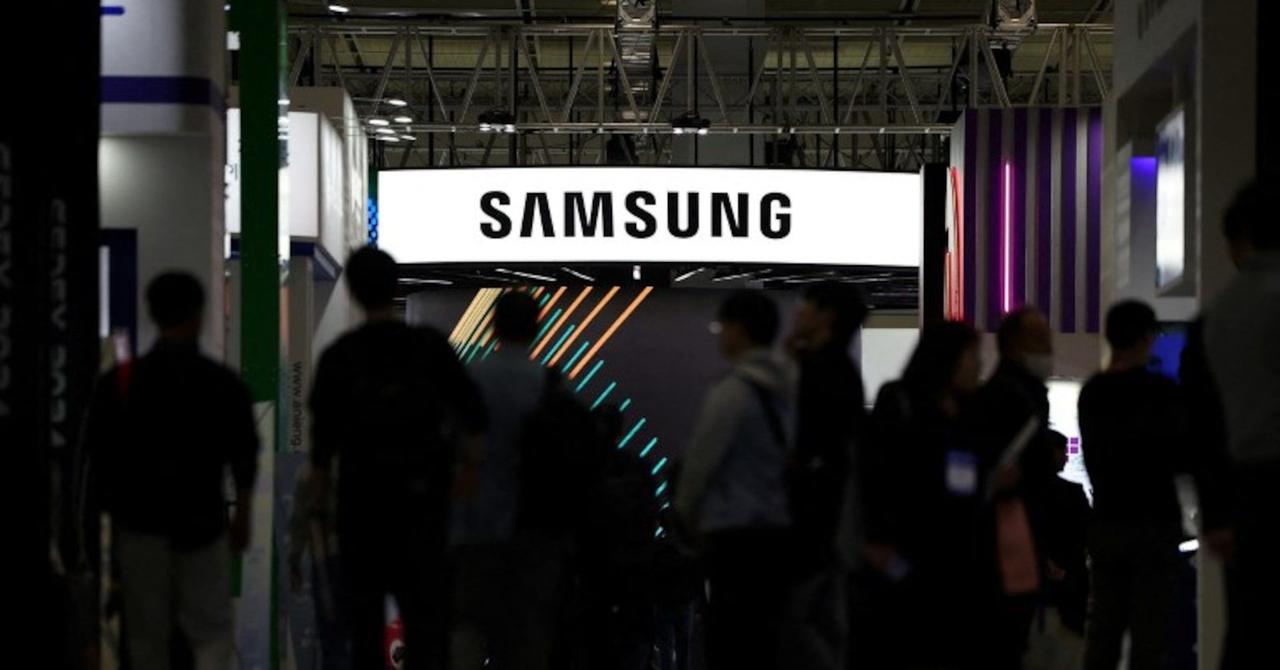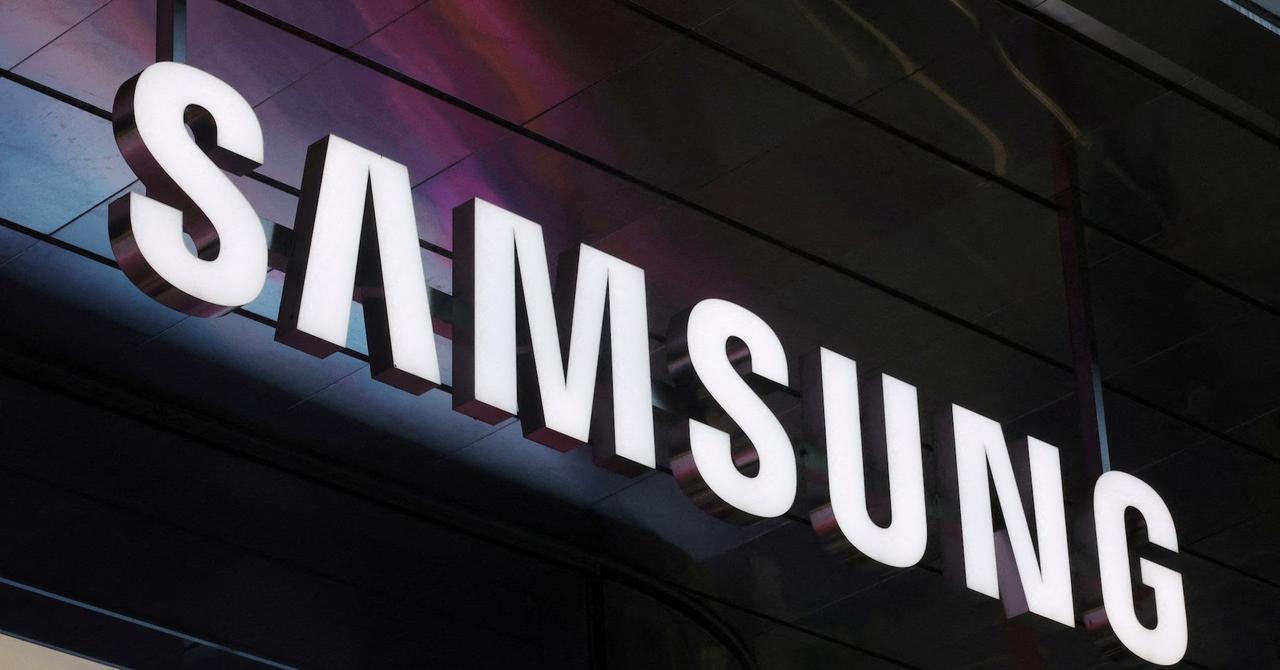Samsung's $122 Billion Market Wipeout: The Cost of Lagging in AI Innovation
3 Sources
3 Sources
[1]
Samsung's sudden $122 billion wipeout shows the cost of sleeping on AI
Just a few months ago, Samsung Electronics looked primed to benefit from the global AI boom: profits were surging and its stock was rising toward an all-time high. Now, South Korea's biggest company has become a stark example of how quickly fortunes can turn in an industry where the spoils go to those who maintain a technological edge. As concerns mount that the company is losing out to smaller rival SK Hynix in AI memory and failing to gain on Taiwan Semiconductor Manufacturing Co. (TSMC) in outsourced chipmaking, Samsung shares have tumbled 32% from this year's peak on July 9. The company has lost $122 billion of market value in that span, more than any other chipmaker worldwide.
[2]
Samsung's Sudden $122 Billion Wipeout Shows the Cost of Sleeping on AI
Just a few months ago, Samsung Electronics Co. looked primed to benefit from the global AI boom: profits were surging and its stock was rising toward an all-time high. Now, South Korea's biggest company has become a stark example of how quickly fortunes can turn in an industry where the spoils go to those who maintain a technological edge.
[3]
Samsung's sudden $122 billion wipeout shows the cost of sleeping on AI
Samsung Electronics Co. has seen a sharp drop in its market value, losing $122 billion. The company's struggles include lagging behind rivals in AI memory and chip manufacturing. Recent management reshuffles and investor sell-offs highlight concerns about Samsung's competitiveness in the evolving tech landscape. Samsung's promise of an overhaul to regain its edge faces skepticism from international investors.Just a few months ago, Samsung Electronics Co. looked primed to benefit from the global AI boom: profits were surging and its stock was rising toward an all-time high. Now, South Korea's biggest company has become a stark example of how quickly fortunes can turn in an industry where the spoils go to those who maintain a technological edge. As concerns mount that the company is losing out to smaller rival SK Hynix Inc. in AI memory and failing to gain on Taiwan Semiconductor Manufacturing Co. in outsourced chipmaking, Samsung shares have tumbled 32% from this year's peak on July 9. The company has lost $122 billion of market value in that span, more than any other chipmaker worldwide. Samsung has promised an overhaul to regain competitiveness, but international money managers including Pictet Asset Management Ltd. and Janus Henderson Investors SP Ltd. are unconvinced a turnaround is imminent. Overseas investors have sold about $10.7 billion worth of the South Korean company's shares on a net basis since the end of July. "We have more than halved our position in Samsung over the last few months -- it was the largest position in our strategy in July," said Sat Duhra, a portfolio manager at Janus Henderson Investors SP in Singapore. While Duhra said the shares have fallen to an attractive valuation, he has "no intention" to buy them for now. Smartphones and other consumer electronics still account for the biggest share of Samsung's sales, but semiconductors have been contributing the most profit in recent years. With the recent crisis in its chip business, the Suwon-based company issued a rare apology to investors earlier this month for disappointing results. The company's story highlights how AI is the key factor minting winners and losers in today's chip sector. While foreign investors have led an exodus from Samsung, Nvidia Corp. has become one of the world's largest companies. TSMC, the key maker of chips designed by Nvidia and Apple Inc., has added over $330 billion in market value this year. Things went south for Samsung quickly. Its stock flirted with a record high after it posted a 15-fold surge in operating profit for the June quarter. As recently as August, investors were optimistic it could win more business supplying Nvidia with high-bandwidth memory to work alongside AI processors. That hope has been snuffed out with the company admitting delays with its latest-generation HBM chips in early October, soon after SK Hynix said it had begun volume production. Meanwhile, US rival Micron Technology Inc. is stepping up efforts in HBM as well, and has reported strong demand for its offerings. Samsung is "losing its technology leadership in the semiconductor business," said Young Jae Lee, London-based senior investment manager of the global emerging markets high-dividend team at Pictet Asset Management. "Technology leadership is difficult to regain in the short term by nature," he said, adding that the firm has been reducing its Samsung holding. Beyond its lag in AI memory, Samsung has struggled with a costly, yearslong effort to close the gap with TSMC in foundry business. Like Intel Corp. -- which has run into similar difficulty with plans to expand its outsourced chipmaking operations -- the Korean firm is now moving to cut jobs and make other efforts to stop the bleeding. Samsung is holding a conference call on Thursday after it releases detailed third-quarter earnings. Among points to watch is an expected management reshuffle before the end of the year, amid ongoing uncertainty over company leadership. Jay Y. Lee -- a grandson of Samsung's founder who was appointed executive chairman two years ago -- was acquitted of stock manipulation charges in February after years of legal issues. Three months later, the company unexpectedly replaced its semiconductor division head with Jun Young-hyun, a memory chip veteran. Management may have its work cut out for it in trying to win back investors, even with stock valuations near a record low and technical indicators flashing oversold signals. "We don't see much is changing with the Samsung executives and engineers are leaving the company," said Park Jinho, head of equity investment at NH-Amundi Asset Management Co. in Seoul. Park reduced Samsung to underweight from neutral at the end of the second quarter and added SK Hynix instead.
Share
Share
Copy Link
Samsung Electronics faces a significant market value loss of $122 billion due to concerns about falling behind in AI memory and chip manufacturing, highlighting the critical importance of maintaining a technological edge in the AI-driven semiconductor industry.

Samsung's AI Misstep Leads to Massive Market Value Loss
Samsung Electronics, South Korea's largest company, has experienced a staggering $122 billion market value wipeout in recent months, primarily due to concerns about its lagging position in AI-related technologies. This dramatic turn of events underscores the critical importance of maintaining a technological edge in the rapidly evolving AI-driven semiconductor industry
1
2
3
.From Boom to Bust: Samsung's Rapid Decline
Just a few months ago, Samsung appeared poised to capitalize on the global AI boom. The company's profits were surging, and its stock was approaching an all-time high. However, the situation quickly deteriorated as investors began to worry about Samsung's competitiveness in key AI-related areas
1
2
.Since reaching its peak on July 9, Samsung's shares have plummeted by 32%, resulting in the loss of $122 billion in market value. This decline represents the largest market value loss among chipmakers worldwide during this period
1
3
.AI Memory and Chip Manufacturing Concerns
Two primary factors have contributed to Samsung's market woes:
-
AI Memory: There are growing concerns that Samsung is losing ground to its smaller rival, SK Hynix, in the AI memory sector. Samsung recently admitted to delays in its latest-generation High-Bandwidth Memory (HBM) chips, while SK Hynix announced it had begun volume production
3
. -
Chip Manufacturing: Samsung has struggled to close the gap with Taiwan Semiconductor Manufacturing Co. (TSMC) in the foundry business. This has been a costly, years-long effort that has yet to yield significant results
3
.
Investor Exodus and Management Challenges
The company's struggles have led to a significant sell-off by international investors. Since the end of July, overseas investors have sold approximately $10.7 billion worth of Samsung shares on a net basis
3
.Samsung's management is facing increasing pressure to address these challenges. The company issued a rare apology to investors earlier this month for disappointing results and has promised an overhaul to regain competitiveness. However, many international money managers remain skeptical about the prospects for an imminent turnaround
3
.Related Stories
The Broader AI Landscape
Samsung's difficulties highlight the transformative impact of AI on the semiconductor industry. While Samsung has struggled, companies like Nvidia have seen their market values soar. TSMC, a key manufacturer of chips designed by Nvidia and Apple, has added over $330 billion in market value this year
3
.Looking Ahead
As Samsung prepares to release detailed third-quarter earnings, investors will be closely watching for signs of a potential turnaround strategy. The company is expected to undergo a management reshuffle before the end of the year, adding another layer of uncertainty to its future prospects
3
.Samsung's story serves as a cautionary tale for tech giants, emphasizing the need for constant innovation and adaptability in the fast-paced world of AI and semiconductor technology. The company's ability to regain its technological edge and investor confidence will be crucial in determining its future in the highly competitive AI-driven market.
References
Summarized by
Navi
Related Stories
Recent Highlights
1
ByteDance's Seedance 2.0 AI video generator triggers copyright infringement battle with Hollywood
Policy and Regulation

2
Demis Hassabis predicts AGI in 5-8 years, sees new golden era transforming medicine and science
Technology

3
Nvidia and Meta forge massive chip deal as computing power demands reshape AI infrastructure
Technology








